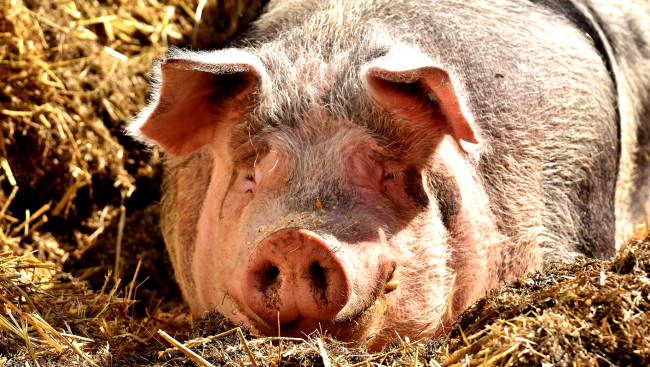
pixabay
- Doctors successfully attached a pig’s kidney to a human body and watched it function as it is supposed to without rejection.
- Surgeons at NYU Langone Health observed the pig kidney function properly for two days and believe this success moves us one step closer to xenotransplantation.
- More science news here.
Xenotransplantation is the process of grafting or transplanting organs or tissues between members of different species. For over a century, attempts at successfully performing such a medical act have been largely unsuccessful.
The most well-known example of xenotransplantation occurred in 1984 when a baby girl known as “Baby Fae” received a baboon heart and lived for 21 days before passing away due to complications and lack of a suitable replacement heart.
More recently, however, doctors at NYU Langone Health were able to successfully attach a pig organ, a kidney, to a human body. Granted, that human body was dead, but the doctors were able to observe the pig kidney for two days and it functioned just as it is supposed to function.
“It had absolutely normal function,” Dr. Robert Montgomery, who led the surgical team last month at NYU Langone Health, told Associated Press. “It didn’t have this immediate rejection that we have worried about.”
Pigs have been the most recent research focus to address the organ shortage, but among the hurdles: A sugar in pig cells, foreign to the human body, causes immediate organ rejection. The kidney for this experiment came from a gene-edited animal, engineered to eliminate that sugar and avoid an immune system attack.
Surgeons attached the pig kidney to a pair of large blood vessels outside the body of a deceased recipient so they could observe it for two days. The kidney did what it was supposed to do — filter waste and produce urine — and didn’t trigger rejection.
But… why pigs?
According to the AP, (1) there are fewer ethical concerns because pigs are raised to be eaten, and (2) pigs have large litters and short gestation periods, and (3) pig organs are comparable to human organs – pig heart valves also have been used successfully for decades in humans.
In the NYU case, researchers kept a deceased woman’s body going on a ventilator after her family agreed to the experiment. The woman had wished to donate her organs, but they weren’t suitable for traditional donation.
The family felt “there was a possibility that some good could come from this gift,” Montgomery said.
Montgomery himself received a transplant three years ago, a human heart from a donor with hepatitis C because he was willing to take any organ. “I was one of those people lying in an ICU waiting and not knowing whether an organ was going to come in time,” he said.
“This is an important step forward in realizing the promise of xenotransplantation, which will save thousands of lives each year in the not-too-distant future,” United Therapeutics CEO Martine Rothblatt said in a statement.
As always happens in cases such as this, there are those, like Karen Maschke, a research scholar at the Hastings Center who will assist in developing the ethics and policy recommendations for the first clinical trials, who ask, “Should we be doing this just because we can?”
Related: Scientists Are Worried That The Miniature Human Brains They Grew In A Lab May Be Sentient, Feel Pain